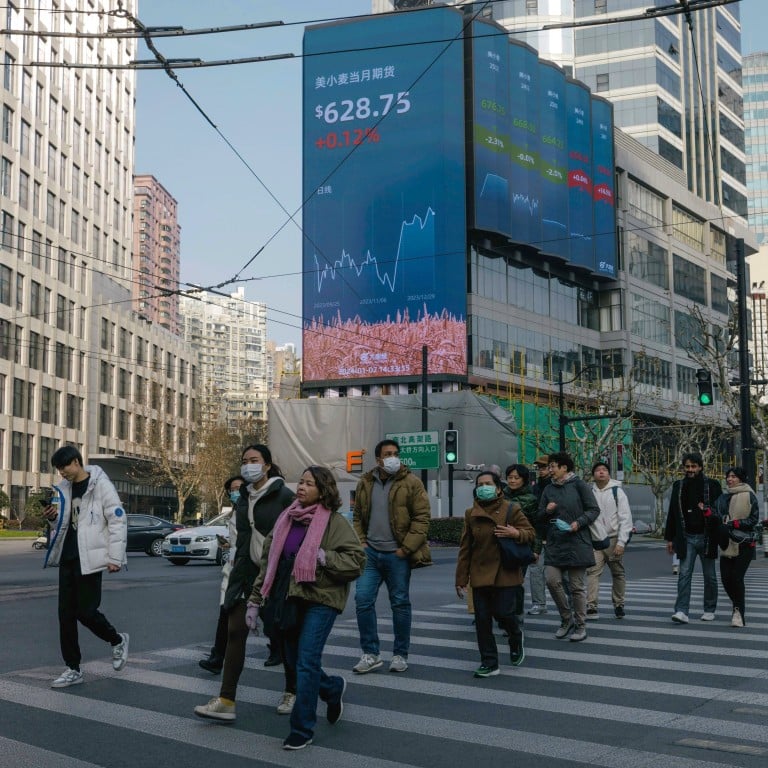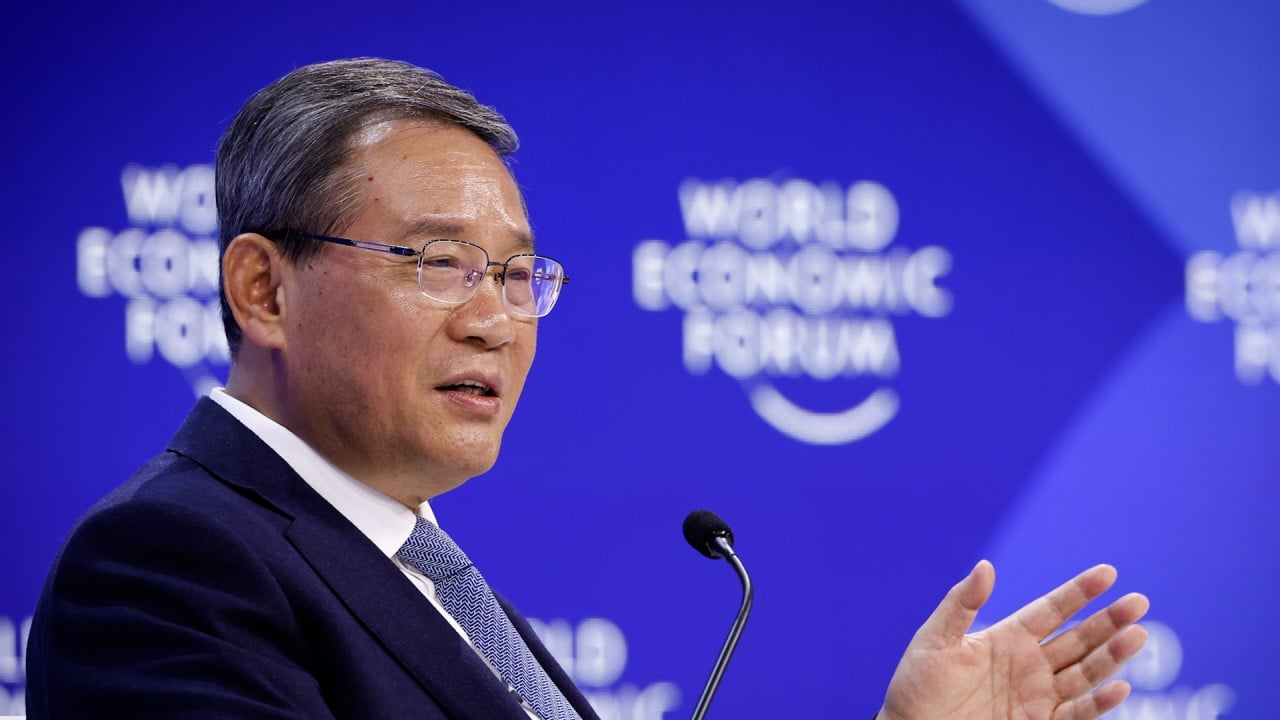
China’s central bank drops hints at future bond trades, answering calls for muscular monetary action
- The People’s Bank of China has come out in favour of trading bonds on the secondary market, indicating a more vigorous monetary policy is on the cards
- Move would suggest a greater willingness to adopt more radical methods to support economic growth, in contrast with earlier conservative stances
“The central bank’s trading of treasury bonds in the secondary market can be used as a liquidity management method and a reserve of monetary policy tools,” the Financial News – a publication backed by the People’s Bank of China – quoted an unnamed official as saying in an article on Tuesday.
The commentary on the viability of a US-style “money printing” programme came as speculation grows over the likelihood of a more assertive liquidity boost from Beijing.
This may not be an ordinary monetary policy supplement, but a major policy shift
Unlike the US and Europe, in China a “monetising budget deficit” – where a central bank buys debt issued by the government to cover fiscal deficits – remains controversial.
“The market scale of Chinese sovereign bonds ranks third globally and liquidity has improved significantly, which provides a possibility for the central bank’s transaction of sovereign bonds in the secondary market,” the PBOC official said.
Despite the bank’s characteristically cautious wording, analysts said it could represent a significant change in approach.
“If the central bank increases the purchase of government bonds to implement money injection in the future, this may not be an ordinary monetary policy supplement, but a major policy shift,” said Huajin Securities in a note on Wednesday.
Xi Jinping lays out plan to make China ‘financial superpower’, warns of risk
The PBOC’s comments followed an article published earlier the same day in party mouthpiece, the People’s Daily. In the latter piece, the Ministry of Finance said it would support a “gradual increase” in the purchase and sale of government bonds.
Citing unnamed experts, the central bank also said that treasury bond issuance by the Ministry of Finance should be “big enough” and at “a stable pace”, to be effective and avoid unexpected volatility in interest rates.
But the PBOC’s objective in trading treasury bonds is different from that of central banks in developed countries, the unnamed PBOC official added.
“When the central banks of some developed economies have exhausted their conventional monetary policy tools, they are forced to purchase treasury bonds on a large scale to achieve monetary policy goals,” the official said.
The contrast with quantitative easing policies was noted by analysts with Everbright Securities, who concurred with the PBOC official that any potential trading of treasury bonds would include both buying and selling, unlike other central banks which only make purchases.
Analysts at Tianfeng Securities said in a note on Wednesday that the trading of treasury bonds over a long period of time can be viewed as an easing measure similar to cutting the reserve requirement ratio – the proportion of their cash holdings banks are mandated to keep in reserve. Lowering this minimum is one way to boost liquidity in the economy without resorting to direct trading.
The PBOC is barred by law from purchasing Chinese government bonds in primary markets, but no such prohibition has ever been implemented against the buying and selling of these debt obligations in the secondary market.
China’s economy has beaten expectations in 2024, growing by 5.3 per cent in the first quarter year on year and laying the groundwork for meeting Beijing’s annual target of about 5 per cent.
China sells more US Treasury bills as Fed signals low interest in rate cuts
Zhang Monan, deputy director of the Institute of American and European Studies at the China Centre for International Economic Exchanges, is among the advisers proposing less orthodox ways to handle the situation.
She said China could adopt certain practices used by the US to weather economic crises throughout history, the coronavirus pandemic most recently.
The ‘dirty talk’ about debt can now have a new and different perspective
“In the context of the new policy cycle and economic cycle, we can free our minds and break stereotypes, especially because we have entered a different stage of development and can change our views on some traditional issues,” said Zhang at a forum in Beijing on Sunday, arranged by think tank Huaxia New Supply Economics Research Institute.
“The so-called dirty talk about debt can now have a new and different perspective.”
Beijing has been reluctant to expand its fiscal policy, preferring one-off measures such as the issuance of special treasury securities. It has delegated a large share of its borrowing to local governments, much of which is off the budget – meaning it would not affect this year’s fiscal deficit ratio, currently set at 3 per cent of gross domestic product.
China cuts banks’ reserve requirement ratio ahead of August data release
In China’s planned budget for 2024, treasury debt was up by just 180 billion yuan (US$24.8 billion) compared with the year before. The central government said it would sell another 1 trillion yuan in ultra-long term special treasury bonds this year, another off-budget move.
Compared to the European Central Bank – which holds around 65 per cent of treasury debt issued by countries in the euro zone – Chinese treasury debt accounts for less than 5 per cent of the PBOC’s assets, according to Beijing-based think tank National Institution for Finance and Development (NIFD).
“We still recommend that the central government budget deficit and the scale of treasury debt should be moderately increased for a long time to come,” the NIFD said in a report on Sunday.
After the US Federal Reserve pledged an “unlimited” expansion of US treasury and mortgage-backed securities purchases in 2020 – and Congress approving the largest-ever flood of federal money the same year – the US economy contracted by 31.4 per cent in the second quarter. However, it has rebounded since.
“This [coordination] is a relatively mature experience in many countries in the three years since the pandemic,” said Zhang, who used to work with the National Development and Reform Commission, China’s top economic planner. “[It avoids] deleveraging in the private sector and the residential sector, with more leverage taken by central banks and government departments. It is worthy of discussion.”


